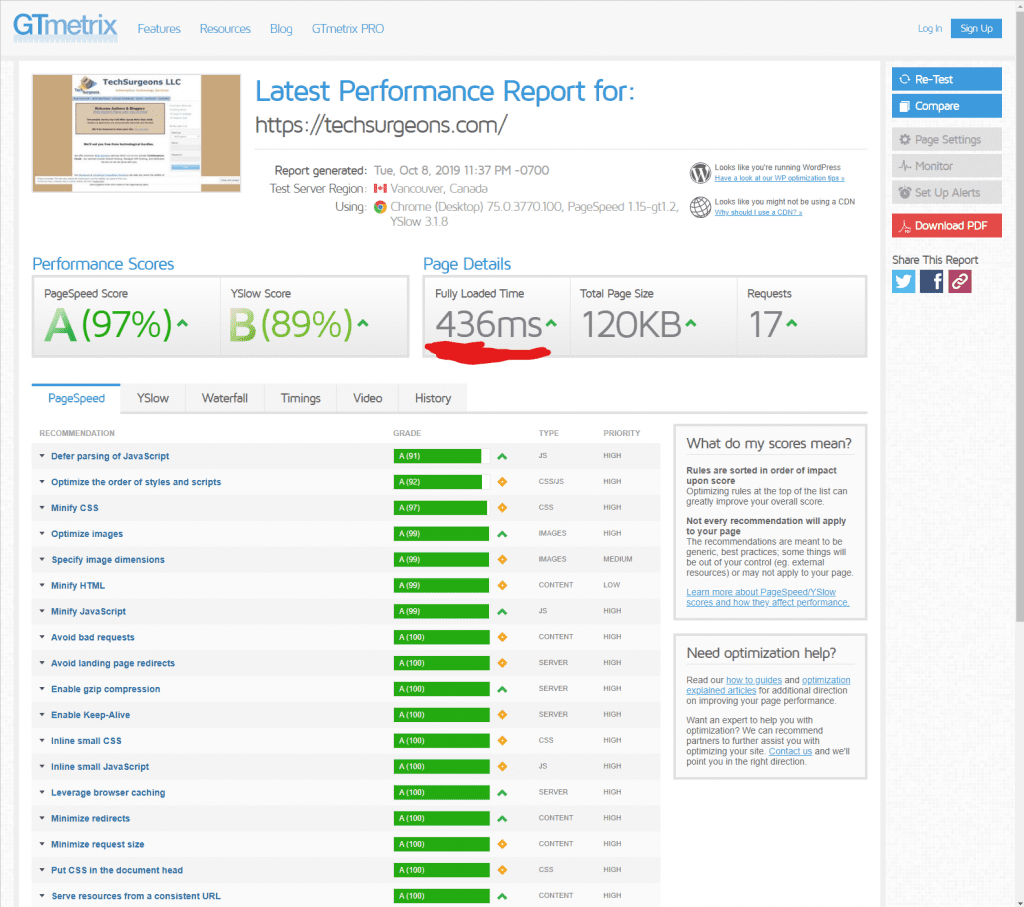While I love hosting your sites and appreciate your trust, there is one phrase above all which makes the head shaped dent in my desk deeper:
“My Site is Slow“
It’s often accompanied by recommendations by “experts” or ad companies to make hosting faster. Which might help with other hosts. But, on our hosting, those suggestions far too often make sites slower and less reliable.
Besides having good backups, our other obsession is eliminating every possible millisecond of hosting related page load times. Remember, our business is based on the philosophy that the better you do, the better we do. So your site being fast is best for both of us.
Which is why we’re quick to embrace performance enhancing technologies like HTTP/2 and TLS 1.3 as soon as they’re stable and have browser support.
So, when a very lovely client, “Elle” opened a ticket about site slowness, I took a different tack than my usual lamenting about plugins and ads, and then walking her through a single GTMetrix test.
Instead, she graciously allowed me to do live testing of her site with ads off and unneeded plugins deactivated. Oh boy… This will be fun!
Elle’s site has 38 plugins, which is not too bad for a high-traffic site with a WooCommerce store. It’s a bunch, but most seemed needed.
To measure performance changes, we tuned up her site, then ran a GTMetrix test before starting, and retested it after we made only the specific changes we mention below. The results speak for themselves.
It’s picture time!
The before picture… Ads & plugins are on.
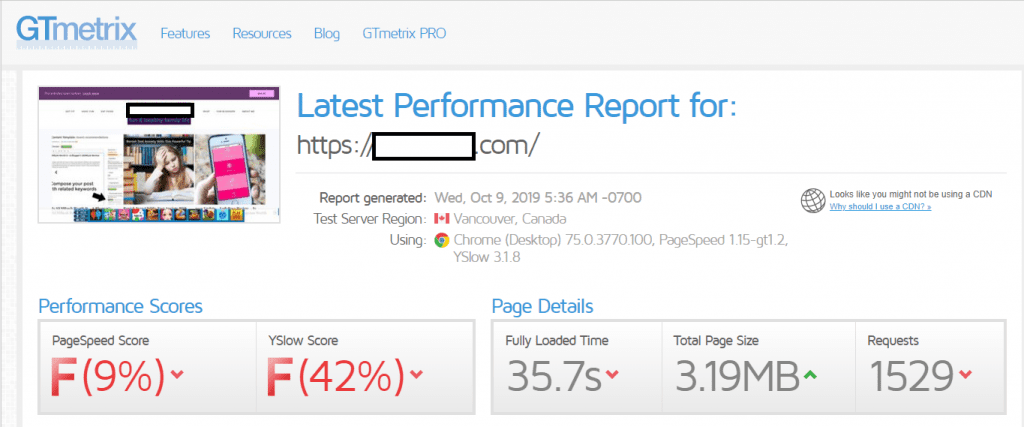
Okay, we have our baseline test…
Let’s get ready for load times to tumble.
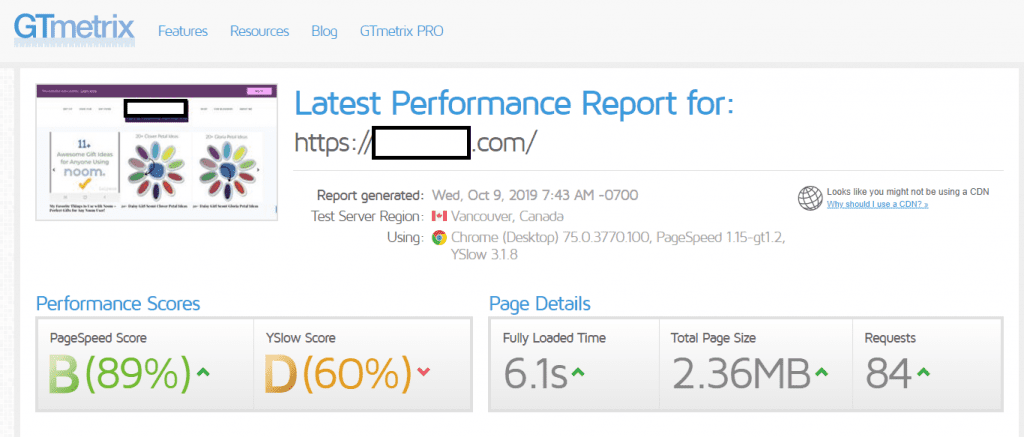
Boom!
Do I have your attention?
Yeah, ads make that much of a difference. Page load times dropped from 35.7 to 6.1 seconds. Google PageSpeed scores jumped from 9% to 89%.
Even in the above case, a few lingering ad-related bits were still loaded, but we wanted a quick test, so didn’t bother tracking those down. Moving on.
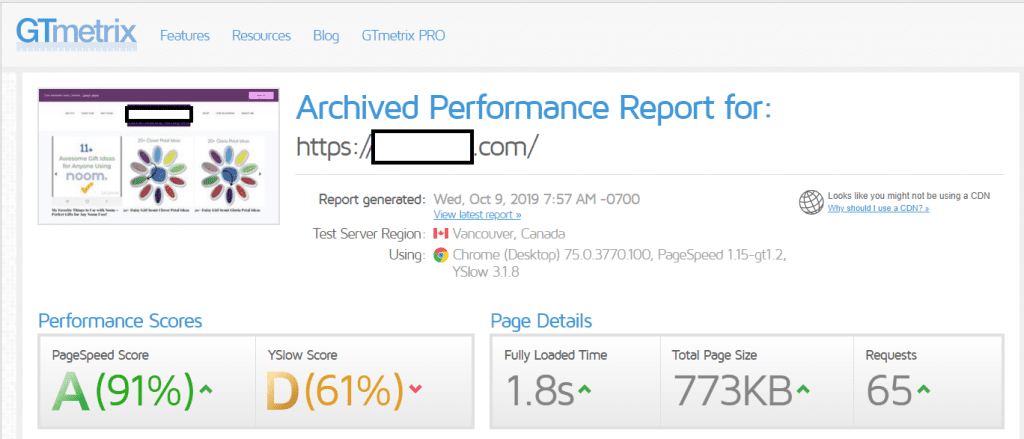
Elle had the SumoMe plugin active, but wasn’t using it. But, it was running, and was requiring site visitors to load some elements from their servers. Deactivating that one unused plugin knocked off 3+ seconds of load time.
Plugin Minimalism For The Win
One Point Eight Seconds.
I repeat… One Point Eight Seconds to load her home page. And a Google PageSpeed score of 91%
Not just that, but the page size is a quarter of what it was, and a reduction of all the things needed to load the page from 1529 to 65.
WOW!
But alas, we had to return to reality. Ads need to be displayed. But at least we could leave off the unnecessary plugin.
The next image shows the “Ads On / Sumo Off test”. Remember, with ads on, overall page load times will vary, as different ads will load different elements. So while we saved load time from turning off the plugin, that savings gets lost here because ads drive 95% of total page load times.
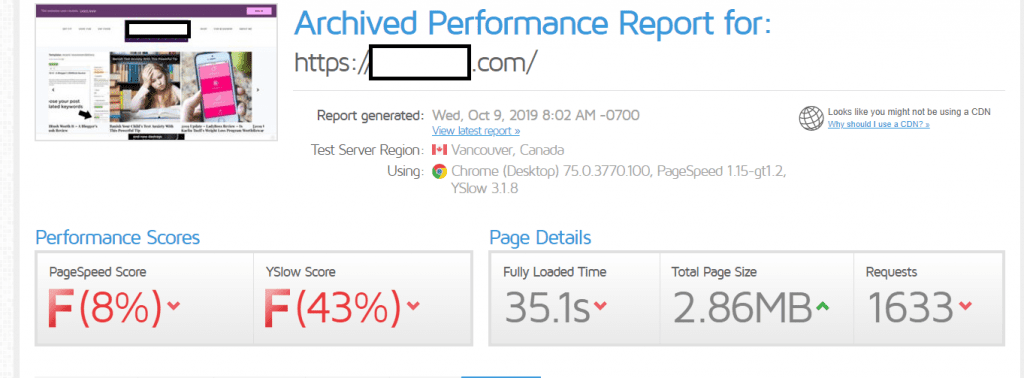
And finally the summary – with my (not-so) skilled addition of markers to show which test maps to which scores.
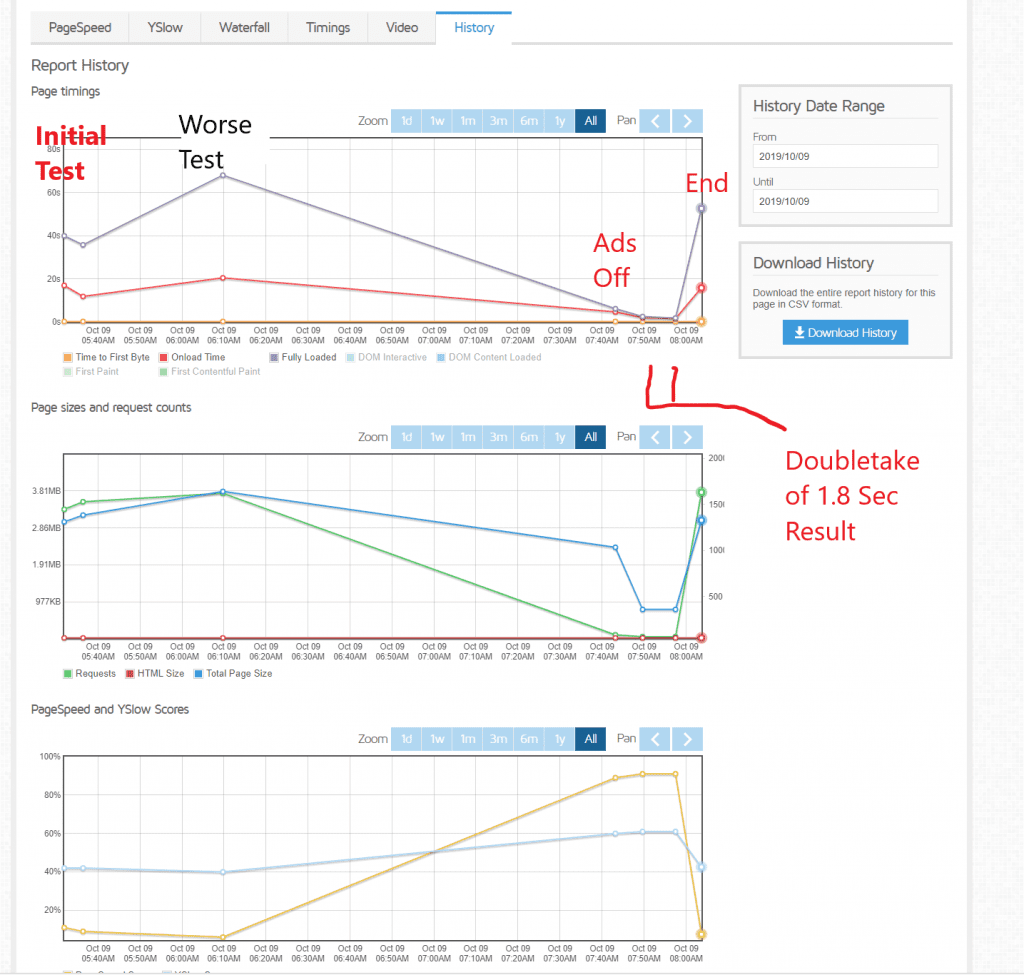
result, as an ad server failed to respond, and that ran up the times.
This concludes the graphical part of my Ted Jay Talk.
Now, these results are specific to Elle’s site. But they reflect what we see almost every time we’re asked about site speed.
For our clients, site slowness generally comes down to ads, plugins, and things being loaded from servers not managed by us.
Not all the time, but almost all the time. And when we encounter things in our world, we take it as a personal challenge to find the cause and crush it.
Notes:
- For simplicity, we deliberately didn’t track “Onload” times. Onload times vs PageSpeed scores is a valid discussion, but it is not this one.
- GTMetrix testing was done from their default Vancouver Canada location. We could have selected a geographically closer site (like Dallas) to juice the results in our favor by another 100ms.
- We’re happy to do additional tuneups of any hosted sites. Depending on the site’s hosting plan, this may be billable time.
If you find this post interesting, have questions, or just want to drop a note, I’d love to hear your thoughts in the comment section below.
Unless of course, the question is “why is my site slow?” 🙂
-TS
One parting graph – the one for our very own, and very ugly, website.
